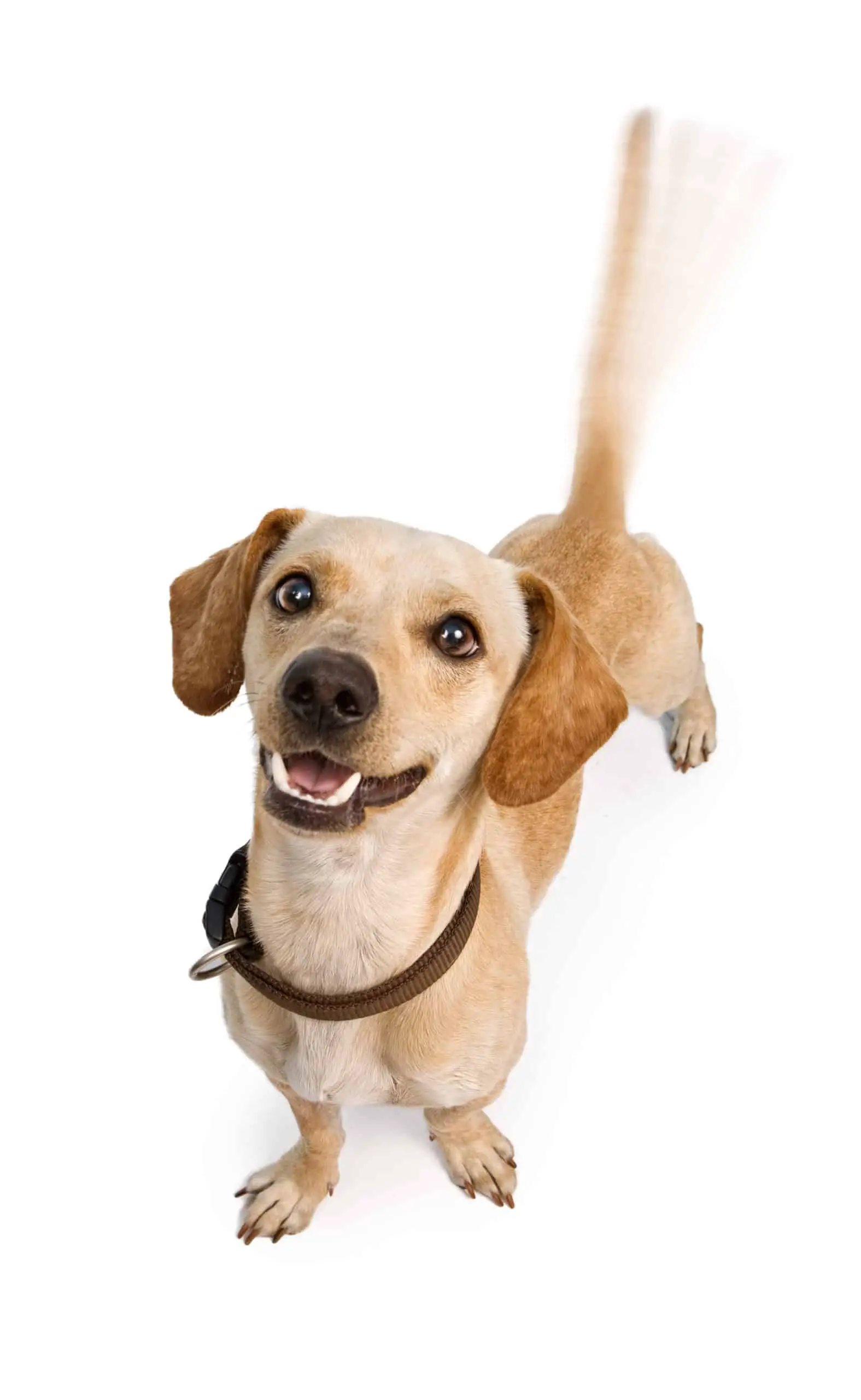Our website is supported by our users. We sometimes earn money when you click an affiliate link and make a purchase. This is at no extra cost to you and helps us to create quality content. Thank you for your support. For all that have shown us such wonderful support, we thank you from the bottom of our hearts!
The Chiweenie is an adorable designer breed that has captured the hearts of many dog lovers. As the name suggests, these tiny dogs are a Chihuahua Dachshund mix.
The Chiweenie is also referred to as a Mexican Hotdog and/or the German Taco
Although the Chiweenie is not recognized by the American Kennel Club (AKC), they are recognized by the Designer Kennel Club and the International Designer Canine Registry (IDCR).
They are quickly gaining in popularity due to their unique appearance and lovable temperament. In this article, we will explore the history, physical characteristics, temperament, training, health issues, grooming, and what it’s like to own a Chiweenie dog. Let’s see if the Chiweenie is the right dog for your family.
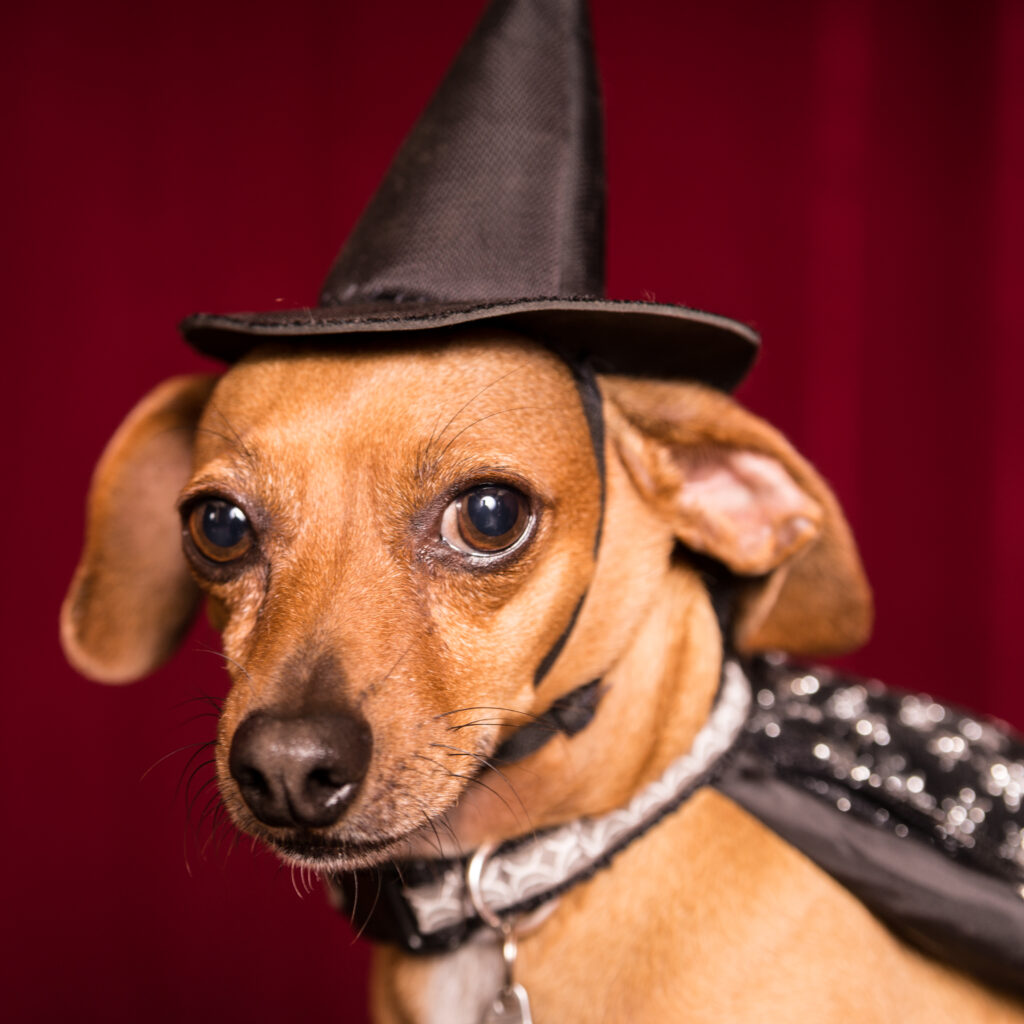
History of the Chiweenie two parent breeds
As mentioned Chiweenie dogs are a crossbreed between a Dachshund and a Chihuahua. Although there is no exact date as to when the first Chiweenie was born, it is believed that they originated in the United States. Designer dog breeds like the Chiweenie became popular in the 1990s and early 2000s.
To understand this breed better, let’s look at some of the history and characteristics of each parent breed.
The Chihuahua
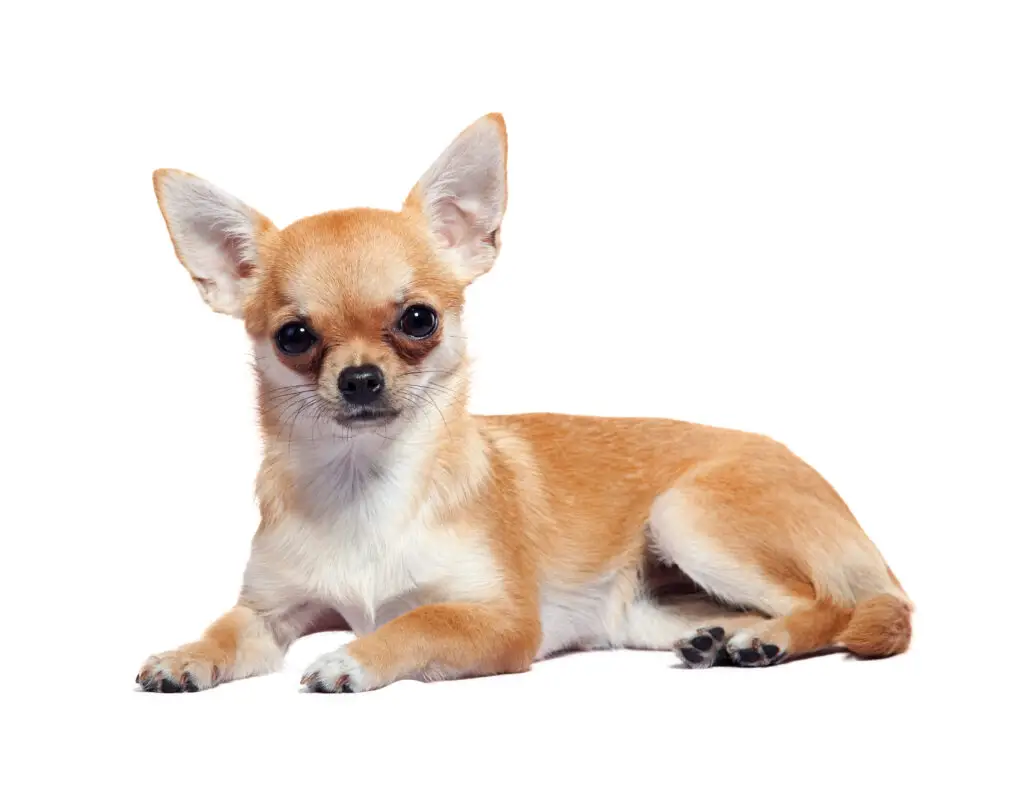
Several breed specialists have proposed that the Spanish conquistadors may have imported the Chihuahua from the island of Malta. While others think China might have been the breed’s birthplace.
However, many believe Chihuahuas are native to Mexico. The Techichi was a little dog that was kept in Mexico. It had a plump body and ears that were reminiscent of Chihuahuas. It was thought that this dog was bred with the Xoloitzcuintli, a hairless dog native to Mexico, to create the Chihuahua as we know it today.
Therefore, the Chihuahua originated in Mexico and was used as a lap dog or companion dogs for Aztec royalty. These dogs served as more than just pets as they were also used for hunting rats.
The Dachshund
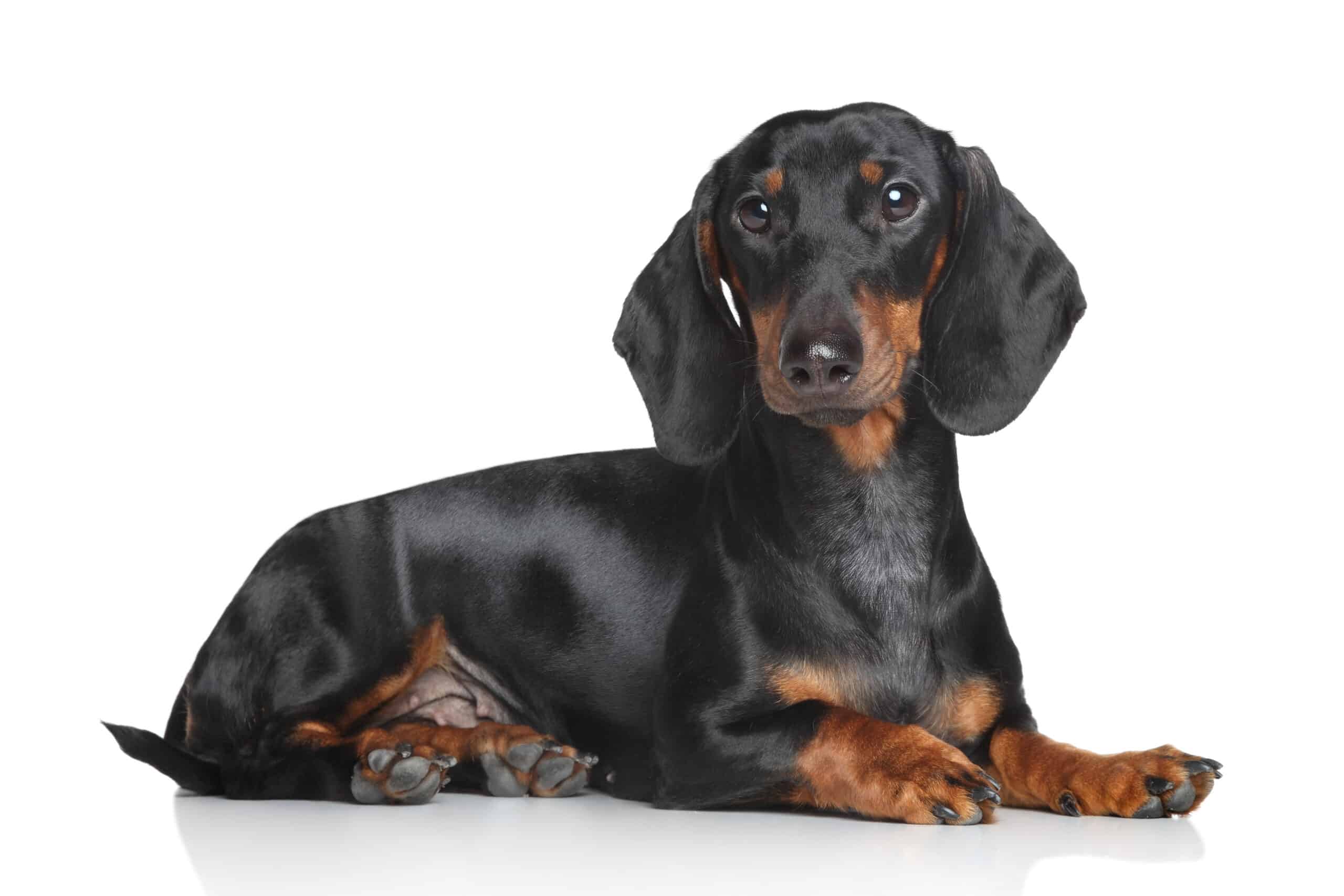
The Dachshund, on the other hand, was developed in Germany and was used as a hunting dog.
The Dachshund, also known as the Wiener dog or sausage dog, is a small breed of hound that has been popular for centuries. This breed is famous for its long body, short legs, and sharp bark and fierce disposition.
The Dachshund breed was developed in Germany during the 16th century, with the intention of creating a hunting dog that could chase and dig into burrows to capture small animals like badgers, rabbits, and foxes.
The breed was specifically bred to have a long, narrow body that could easily fit into burrows and tunnels. They were also given short legs to make it easier for them to maneuver around underground.
The word “Dachshund” actually means “badger dog” in German.
The Dachshund quickly became a popular hunting dog among the German aristocracy, who used them to hunt small prey. They were bred in three different sizes – standard, miniature, and kaninchen (meaning rabbit in German). The smallest size was bred to hunt rabbits, while the larger sizes were used to hunt badgers.
In the 19th century, the Dachshund began to gain popularity in other countries as well. The breed was first introduced to the United States in the late 1800s, and it quickly became a favorite of dog lovers across the country. The breed was also popular in other European countries, such as France and England.
During World War I, the popularity of the Dachshund declined in the North America due to anti-German sentiment. The breed was associated with Germany, and some people believed that owning a Dachshund was unpatriotic. However, after the war ended, the breed regained its popularity and became a beloved pet in households across the country.
During World War II, the Dachshund once again fell out of favor in the United States, this time because of its association with Germany’s Nazi regime. The breed was almost completely wiped out in the country, and it took years for breeders to bring it back to prominence.
Today, the Dachshund remains a popular breed all over the world. It is one of the most recognized breeds and has become a favorite pet of people of all ages. The breed is known for its loyalty, intelligence, and affectionate nature toward its favorite humans.
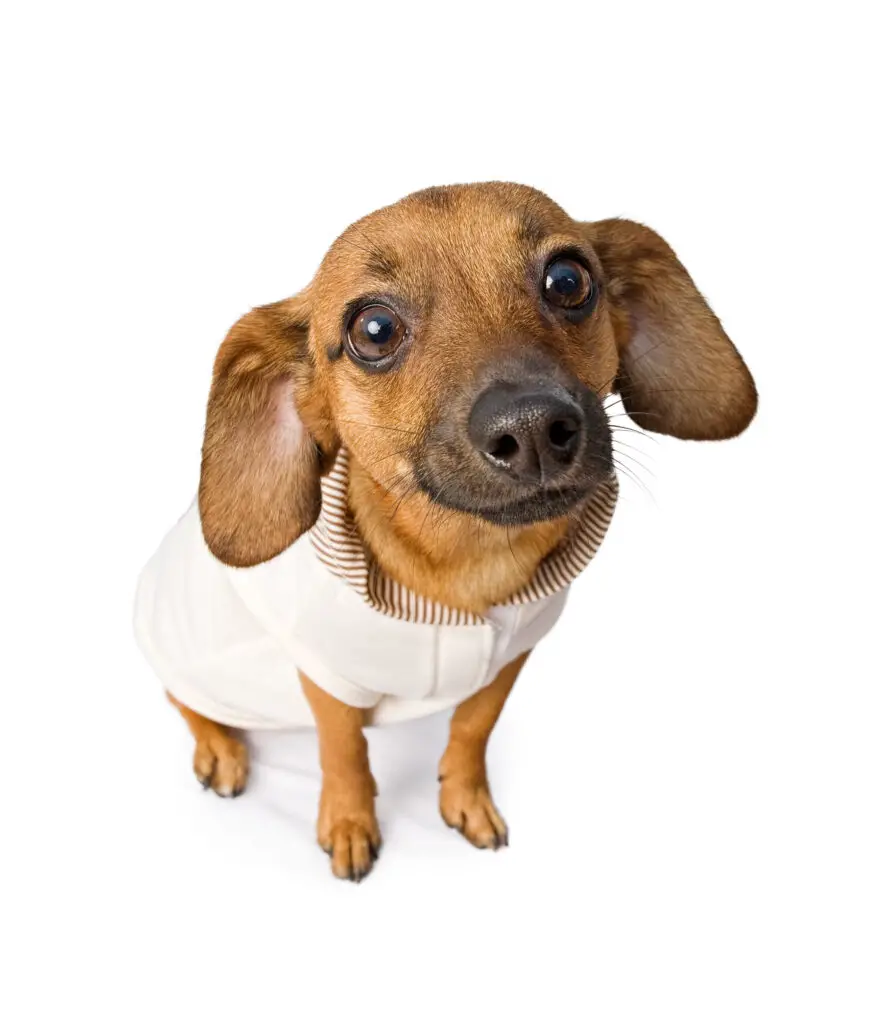
As a hunting dog for badgers, it is very energetic, feisty and prone to thinking it is a much bigger dog than it is.
In recent years, the Dachshund has been the subject of controversy due to health concerns associated with the breed. The long body of the Dachshund puts strain on their spine, which can lead to back problems and other health issues.
Despite the challenges and controversies that have faced the breed, it remains a favorite among dog lovers everywhere.
Physical Characteristics of Both Parent Breeds
Chihuahua Physical Characteristics
- Chihuahuas have large eyes, erect ears, and small heads
- They typically have an average weight between 2 to 6 pounds and stand between 6 to 9 inches tall at the shoulder
- Chihuahuas have a short, smooth coat or a long, curly coat
Dachshund Physical Characteristics
- Dachshunds have short legs, long bodies, and floppy ears
- They typically weigh between 16 to 32 pounds and stand between 8 to 9 inches tall at the shoulder
- Dachshunds have a variety of coat types including smooth, long-haired, and wire-haired
So mixing them together we get the characteristics of a Chiweenie, Mexican Hot Dog or a German Taco.
The Chiweenie
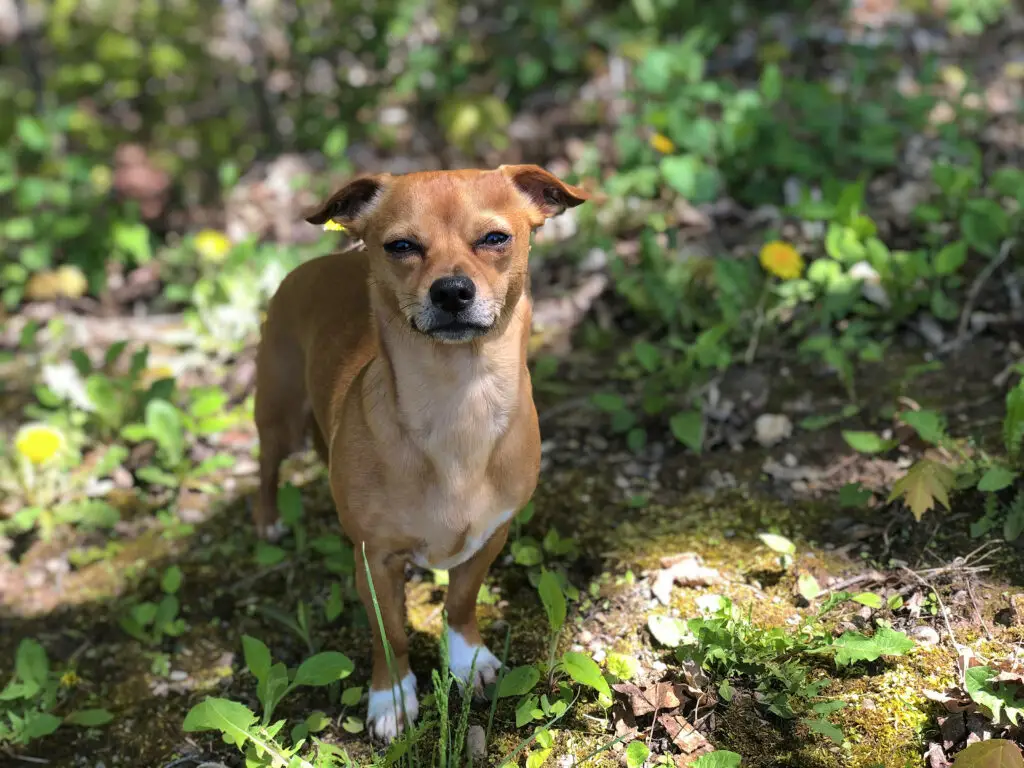
The Chiweenie:
- They have a long body, short legs, and a rounded head and typically weighs between 5 and 12 pounds and stands about 6 to 10 inches tall.
- The ears can be either erect or floppy, and the eyes are round and expressive.
- The coat type can vary depending on which parent breed they take after.
- Some Chiweenies have a short hair and a smooth coats like the Chihuahua, while others have long hair like the long-haired Dachshund or short coats like the short haired dachshund.
- Coat colors can vary in a large range between the two dogs.
- The average lifespan of a Chiweenie is between 12-16 years
Temperament & Training of the Chiweenie
The Chiweenie is a loving and affectionate dog that loves to be around people. As a good companion dog they are loyal and protective of their owners, and they are known for their courage despite their small size.
Also as little dogs, the Chiweenie breed makes great indoor pets and are well-suited to small apartment living. However, they are also high-energy dogs and they do require regular exercise to keep them healthy and happy.
Chiweenies are also intelligent and easy to train. They are eager to please their owners and respond well to positive reinforcement techniques. However, like all dogs, they can be stubborn at times and may require patience and consistency in training sessions.
This mixed breed dog normally get along well with children and enjoy cuddling and playing with them. But, because they are a smaller and more delicate breed, it is essential that young children, and older children, treat them with respect and gentleness.
Chiweenie puppies are especially small and delicate.
Socialization is important for Chiweenies, as they can be wary of strangers and other dogs. Early socialization and training can help to prevent any issues with aggression or anxiety.
Chiweenies are also very social dogs and do not like to be left alone for long periods. They thrive on attention and need to be with their owners as much as possible. Though they bond with one individual in the family, they also get along well with other pets and children, making them a good family member.
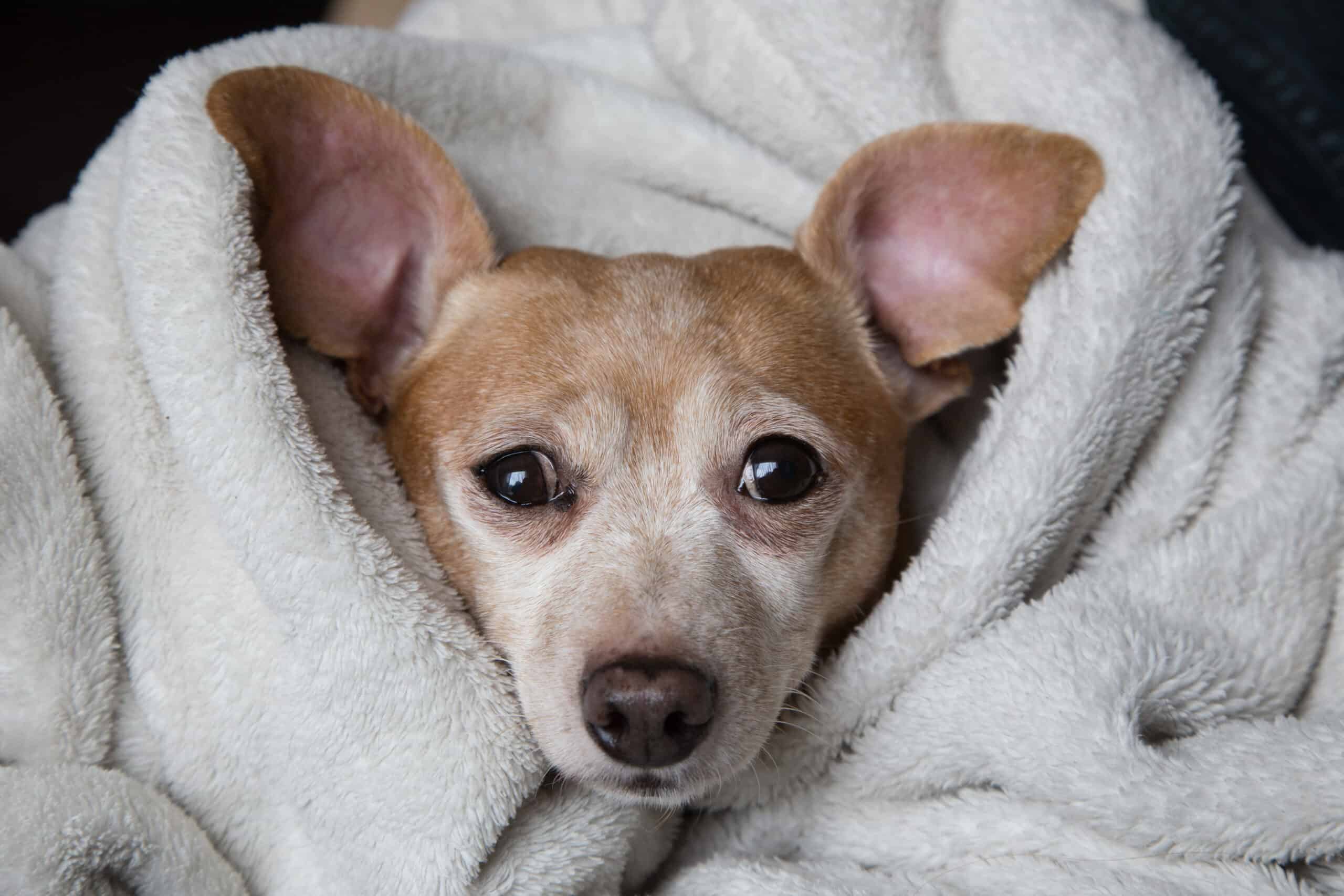
Health Problems of the Chiweenie
Patellar Luxation
Patellar Luxation is one of the most common health conditions in small breeds like the Chiweenie. It occurs when the kneecap dislocates from its normal position, causing pain and discomfort for the dog. Some Chiweenies may require surgery to correct this issue, while others may only need medication and rest.
Hypoglycemia
Hypoglycemia is another one of the medical conditions that small dogs are prone to. It is when the blood sugar levels drop to dangerous levels, causing weakness, seizures, and even death in severe cases.
Chiweenies are particularly prone to this condition due to their small size and high energy levels. It is important to monitor your dog’s blood sugar levels and provide them with regular meals and snacks to prevent hypoglycemia.
Allergies
Chiweenies can be prone to allergies, which can cause skin irritation, itching, and respiratory problems. Common allergens for dogs include pollen, dust mites, and certain foods.
If your Chiweenie is experiencing allergy symptoms, it is important to work with your veterinarian to determine the underlying cause and develop an appropriate treatment plan.
Obesity
Obesity is one of the most common issues in small dog breeds like the Chiweenie. Because of their small size, it is important to monitor their weight and diet to prevent health issues related to obesity, such as joint problems and diabetes.
It is important to provide your Chiweenie with exercise on a regular basis and a balanced diet to maintain their health.
Cataracts
Cataracts Although cataracts can affect both young and old dogs, older Chihuahuas are more likely to get cataracts and go blind.
Genetic predisposition (dogs with cataracts shouldn’t be bred), metabolic disorders (diabetes), trauma, nutritional imbalance (orphan pups on milk replacer), and chronic uveitis are some of the causes (an inflammatory disease of vascular tissue deep in the eye).
If your Chiweenie’s eye lenses become more opaque, so that they appear foggy rather than clear, it is a good idea to take them to your vet.
Degenerative Disc Disease or Intervertebral Disks Disease
Degenerative Disc Disease (DDD) is a common condition that affects the intervertebral discs, which are the cushion-like structures between the vertebrae that make up the spine. This condition is particularly prevalent in Chiweenies, which they inherit from their Dachshund parent breed.
DDD occurs when the discs in the spine begin to break down over time, losing their elasticity and ability to absorb shock. This can lead to a range of symptoms, including pain, stiffness, and mobility issues.
In severe cases, the affected discs can herniate, causing pressure on the spinal cord and nerve roots, which can lead to neurological symptoms such as weakness and numbness.
There are several factors that can increase the risk of DDD in Chiweenies other than genetics. Other risk factors include obesity, lack of exercise, and poor nutrition.
Additionally, traumatic injury to the spine can also increase the likelihood of developing DDD. As Chiweenies are excitable, the doorbell ringing or seeing an animal outside, can have them flying off high furniture like couches and beds.
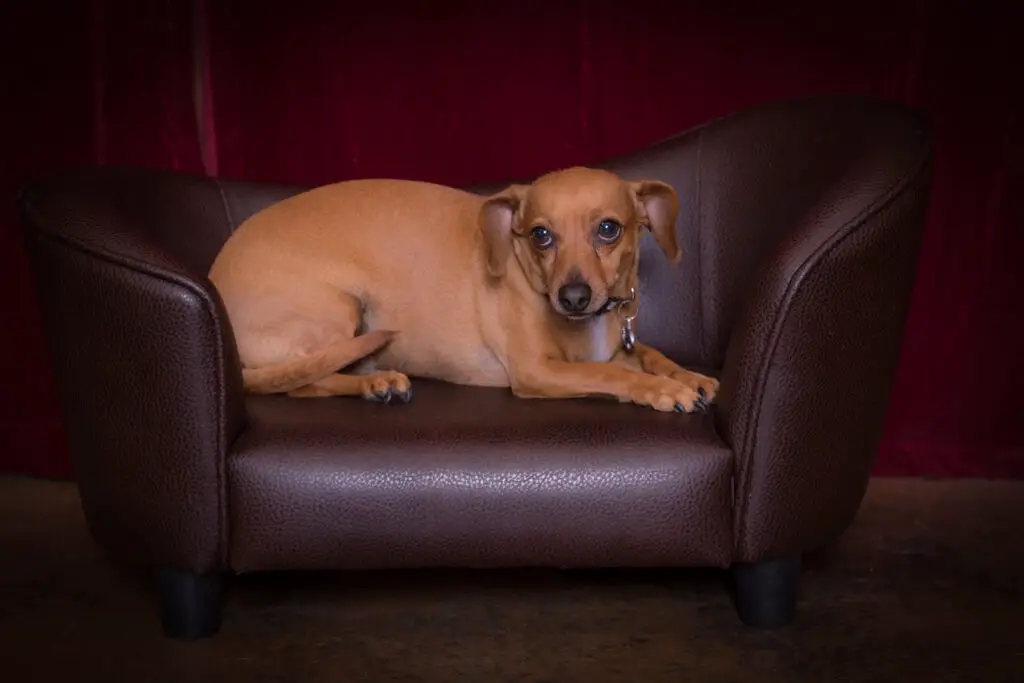
If you enjoy sharing your high places with your Chiweenie, train them to use a dog ramp or stairs to get up and down even when they are excited. We like this one by Zicoto Dog Stairs and Ramp for Beds Or Couches
Treatment for DDD in Chiweenies typically involves a combination of conservative measures and more invasive interventions.
Conservative measures may include rest, physical therapy, and medications to manage pain and inflammation. In some cases, weight loss and exercise may also be recommended to improve overall spinal health.
More invasive interventions, such as surgery, may be necessary in severe cases where the spinal cord or nerve roots are being compressed.
Preventing DDD in Chiweenies involves several key strategies. One of the most important is maintaining a healthy weight, as obesity can increase the risk of developing this condition. Regular exercise is also essential, as it helps to keep the spine healthy and strong. Providing a well-balanced diet that is rich in essential nutrients can also support spinal health and prevent the development of DDD.
Grooming Your Chiweenie
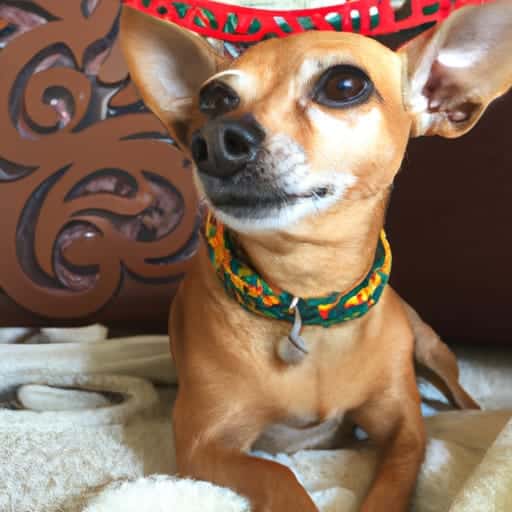
The Chiweenie is a small breed of dog that requires regular grooming to maintain its appearance and overall health. Proper grooming not only keeps the dog looking good, but it also helps to prevent skin irritations and other health issues.
Bathing: Bathing your Chiweenie is an essential part of grooming. However, it is important not to bathe your dog too often, as this can strip the skin of its natural oils and cause dryness and irritation. Generally, it is recommended to bathe your Chiweenie once every three months or as needed.
When bathing your dog, use a mild shampoo that is specifically designed for dogs. Avoid using human shampoos, as they can be too harsh for a dog’s sensitive skin.
Brushing: Regular brushing is important for keeping your Chiweenie’s coat healthy and free of tangles and mats. Brush your dog at least once a week using a soft-bristled brush or a slicker brush. Make sure to brush in the direction of the hair growth, being gentle around sensitive areas like the ears and belly.
If your Chiweenie has longer hair, you may need to brush more often to prevent tangles and mats. In addition, you may want to consider trimming the hair around the face and ears to prevent irritation and infection.
Trimming fur:
While Chiweenies don’t typically need a lot of hair trimming, you may occasionally need to trim hairs around their paws, ears, or sanitary areas.
Use dog clippers or grooming scissors for a clean, tidy cut. This GLADOG Professional Grooming Scissors Set is perfect to have on hand. Be cautious when trimming to avoid causing any discomfort or injury.
Clipping or Grinding Nails:
Trimming your Chiweenie’s nails is also an important part of grooming. Long nails can be uncomfortable for the dog and can even cause health issues if left untrimmed.
To trim your dog’s nails, use a sharp pair of dog nail clippers and clip the tips of the nails, being careful not to cut too close to the quick (the blood vessel inside the nail). Learn how to grind your dog’s nails safely. And learn which grinders to use.
If you are unsure about trimming your dog’s nails, ask your veterinarian or a professional groomer for assistance.
Or check out our article: How to Clip Your Dog’s Nails
Ear Cleaning:
The Chiweenie is prone to ear infections due to its long ears that trap moisture and debris. To prevent ear infections, it is important to clean your dog’s ears regularly.
Be gentle and avoid inserting anything deep into the ear canal, as this can cause damage or injury.
These wipes can be really convenient to make cleaning your dog’s ears an easier process.
Teeth Cleaning:
Dental hygiene is important for all dogs, including the Chiweenie. To keep your dog’s teeth clean and healthy, brush them regularly using a soft-bristled toothbrush and dog toothpaste. You can also provide your dog with dental chews and toys to help remove plaque and tartar buildup.
Eye Care:
The Chiweenie is prone to eye infections and other issues, such as dry eye and cataracts. To prevent these issues, it is important to keep your dog’s eyes clean and free of debris.
Use a soft cloth or cotton ball soaked in warm water to gently wipe the eyes, being careful not to touch the eyeball itself.
These Earth Rated Eye Wipes can make this process much easier.

Owning a Chiweenie
Owning a Chiweenie can be a great experience for the right person or family. They are loyal, affectionate, and intelligent dogs that make great companions. However, there are some things to consider.
It is important to understand the breed’s characteristics, needs, and potential challenges before making the commitment.
Special Characteristics: The Chiweenie is a small breed of dog that is known for its affectionate and loyal personality. They are playful and energetic, but also love to cuddle and be close to their owners. Chiweenies are intelligent dogs that can be trained to perform various tasks and tricks. They are also known for their alertness and can make good watchdogs.
However, like any breed, Chiweenies can have some potential drawbacks. They can be prone to barking and can become overly attached to their owners, which can lead to separation anxiety if left alone for too long.
One personality trait can pose potential dangers. They have a strong prey drive, which can make them chase after small animals or even cats. Due to their high confidence, they may even attempt to face off or attack animals much larger than themselves.
Chiweenies can be stubborn and may require consistent training to overcome their willful nature.
Cost of Purchase: The cost of purchasing a Chiweenie can vary depending on several factors, including the breeder, location, and demand for the breed. On average, you can expect to pay between $300 to $1000 for a Chiweenie puppy. It is important to only purchase a puppy from a reputable breeder who has health-tested their breeding dogs and has a good reputation for producing healthy and well-socialized puppies.
Maintenance Costs: In addition to the initial purchase price, owning a Chiweenie comes with several maintenance costs. As previously discussed, Chiweenies require regular grooming, including bathing, brushing, and nail trimming.
They may also require dental cleanings and ear cleanings to prevent infections. Depending on your location and the type of services you require, grooming and veterinary care can range from a few hundred to several thousand dollars per year.
Special Training: As with any breed, Chiweenies may require special training to overcome certain challenges. For example, if your Chiweenie has a strong prey drive, they may require training to prevent them from chasing after small animals or cats.
Additionally, if your Chiweenie is prone to separation anxiety, you may need to work with a trainer or behaviorist to help them feel more comfortable being alone.
Medical Costs: Like all dogs, Chiweenies can be prone to certain health issues, such as dental problems, patellar luxation, and eye and ear infections. It is important to budget for potential medical costs, including routine check-ups, vaccinations, and emergency care. It is also a good idea to consider pet insurance to help offset some of the costs of unexpected medical expenses.
Finding Breeders: Finding a reputable breeder can be a challenge, as there are many unscrupulous breeders who prioritize profit over the health and well-being of their puppies. It is important to research breeders thoroughly, ask for references, and visit the breeder’s facilities before making a purchase.
You can also consider adopting a Chiweenie from a local shelter or rescue organization.
Fun Facts: Despite their small size, Chiweenies are known for their big personalities. They can be quite comical and love to play and entertain their owners. They are also known for their love of snuggling and can make great lap dogs.
Additionally, Chiweenies are often described as “designer dogs” due to their mixed breed heritage, which some people find appealing.
Unfortunately, Chiweenies can be susceptible to separation anxiety, which can lead to destructive behavior.
FAQs About The Chiweenie

Are Chiweenies hard to potty train?
House training a Chiweenie can be a challenging task for several reasons. One of the main reasons is that Chiweenies are small dogs with small bladders, which means they need to go to the bathroom frequently.
As a result, they may have accidents indoors if they are not taken outside often enough.
Additionally, Chiweenies can be stubborn and independent, which can make them resistant to training. They may also be easily distracted, making it difficult to get their attention when it’s time to go outside.
Furthermore, because Chiweenies are a crossbreed, their temperament and behavior can vary widely depending on the individual dog. This means that what works for one Chiweenie may not work for another, making house training a Chiweenie a somewhat trial-and-error process.
However, with patience, consistency, and positive reinforcement, it is possible to successfully house train a Chiweenie.
Set a timer to take your puppy out once per hour. Take them to the same spot where they have gone before and be patient. Give them a love, snuggles and little treat every time they do their business. Be sure to tell them what a good boy or girl they are so they understand that when they hear your praise that what ever behavior they are doing is the the right behavior.
Do Chiweenies like to cuddle?
They are generally social dogs that enjoy spending time with their owners, and this often includes cuddling.
While every Chiweenie is unique and may have different preferences when it comes to affection, many Chiweenies do enjoy cuddling with their owners.
However, because Chiweenies are small dogs with high energy, they may not always be comfortable with rough handling or being held for extended periods.
As with any dog, it is important to pay attention to the individual Chiweenie’s body language and respond accordingly. If a Chiweenie seems uncomfortable or anxious when cuddling, it is important to respect their boundaries and give them space.
Overall, Chiweenies can make wonderful cuddle buddies for those who enjoy spending quality time with their furry companions.
The Bottom Line on the Chiweenie
For the proper person or family, owning a Chiweenie may be a wonderful experience. They are bright, devoted, and loyal canines that make wonderful companions.
They are a best choice for small spaces and, unlike larger dogs, make great apartment dogs. This dachshund chihuahua mix are comprised of two hunting breeds with are both energetic dogs. They require at least a short walk every day.
Overall, while Chiweenies are generally healthy dogs, it is good idea to know the health concerns of both it’s chihuahua parent and it’s dachshund parents. It is important to monitor them for any potential health issues and provide them with appropriate care to maintain their health and well-being.
Regular veterinary checkups, a balanced diet, and regular exercise are all the best way to ensure your Chiweenie remains healthy and happy.
Grooming your Chiweenie is an important part of owning a healthy and happy pet. Regular bathing, brushing, trimming, ear cleaning, teeth cleaning, and eye care can help prevent health issues and keep your dog looking and feeling great. Be sure to consult with your veterinarian or a professional groomer if you are unsure about any aspect of grooming your Chiweenie.
With proper care and attention, your Chiweenie can thrive and provide you with years of love and companionship.
Though they can be stubborn and willful, they are smart, affectionate and loyal. They and will provide good companionship for their families and are good with small children. And the good news is that they can be trained fairly easily.
Please read our Legal Disclaimer

